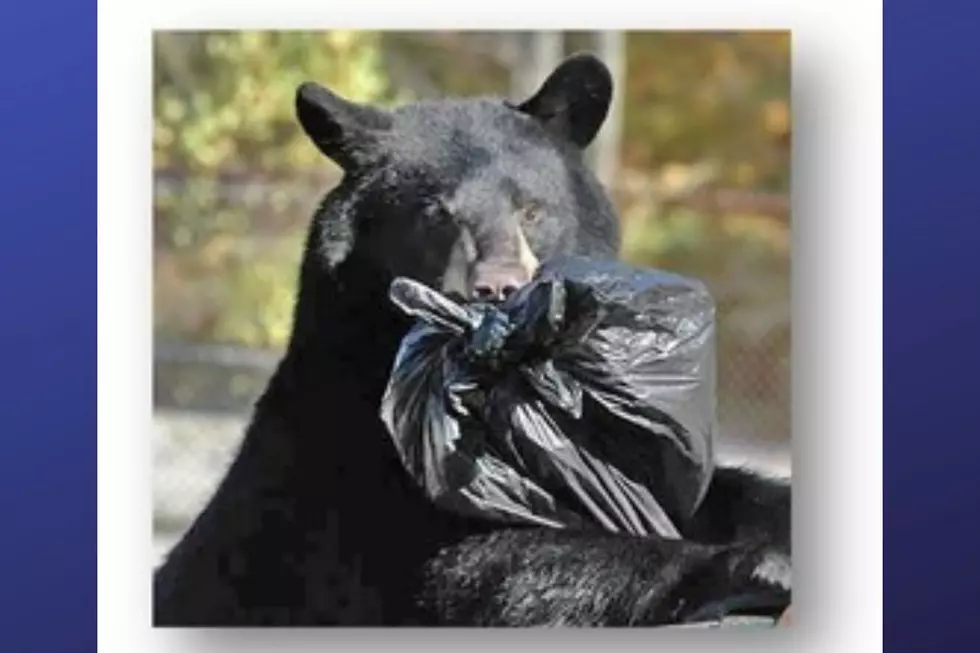
NJ: Don’t feed the bears as they prepare for winter denning
As black bears actively begin foraging for food to prepare for their winter denning season, the state Department of Environmental Protection is urging residents to strictly adhere to the guidelines for properly eliminating or securing potential food sources.
Property owners, hikers, campers, and other outdoor enthusiasts can reduce the likelihood of attracting black bears if they bear-proof their residences and camps by simply removing or properly securing any potential food source.
“Black bears are preparing to den up for the winter season and need to consume substantial amounts of food in the fall,” DEP Fish and Wildlife Assistant Commissioner David Golden said.
It is important that bears do not find food near a person’s home as they will take advantage of easy meals by searching through unsecured garbage cans, and raiding bird feeders, he added.
People should never feed black bears, the state DEP warned. Bears may learn to associate people with food, thus becoming nuisances, possibly causing property damage, or worse.
Intentionally feeding bears is illegal in New Jersey and carries a fine of up to $1,000.
Most of the state’s black bears live in the northwest portion of the state, particularly Morris, Sussex, Warren, and northern Passaic counties, and portions of Hunterdon, Somerset, and Bergen counties. However, black bears have been sighted in all 21 New Jersey counties.
How can New Jerseyans minimize conflicts with bears?
Secure trash and eliminate obvious food sources such as pet food bowls, easy-to-reach bird feeders, or even food residue left on barbecue grills.
Use certified bear-resistant garbage containers, if possible. If not, store all garbage in containers with tight-fitting lids and place them along the inside walls of a garage, or basement.
Wash garbage cans frequently with a disinfectant to remove odors. Put out garbage only on collection day, and not the night before.
Avoid feeding birds when bears are active. Feed the birds during daylight hours only and bring feeders inside at night. Suspend bird feeders from a free-hanging wife, making sure they are at least 10 feet off the ground. Be sure to clean up spilled seeds and shells daily.
Remove all uneaten food and food bowls used by pets fed outdoors immediately.
Clean outdoor grills and all utensils.
Do not place any meat or sweet foods in compost piles.
Remove fruit or nuts that fall from trees in your yard.
Properly install electric fencing as an effective way to protect crops, beehives, and livestock.
What should you do if you encounter a black bear in your neighborhood?
Remain calm. Never run from a bear, as this may trigger its predatory instinct. Instead, slowly back away. Avoid direct eye contact. Bears may perceive this as a challenge. Make sure the bear has an escape route.
To scare the bear away, make loud noises by yelling, banging pots and pans, and blowing a whistle or an air horn. Make yourself look as big as possible by waving your arms.
Make bears aware of your presence by speaking in an assertive voice, singing, clapping your hands, or making other noises.
If a bear makes a series of huffs, popping jaw sounds, or swats the ground, these are warning signs that you are too close. Again, slowly back away. Do not run.
If a bear stands on its hind legs, it may be trying to get a closer look at something or it’s trying to detect scents in the air. This is usually a non-threatening behavior.
Black bears may “bluff charge” when cornered, threatened, or attempting to steal food. Stand your ground, avoid direct eye contact, slowly back away, and don’t run.
If the bear does not leave, move to a secure area, such as a car or a building.
Families who live in areas frequented by black bears should have a “bear plan” in place with an escape route.
Report black bear damage or aggressive bears to your local police department.
How does the NJ DEP help avoid human-bear conflicts?
In FY22, the Murphy administration earmarked $1.5 million for the DEP to expand non-lethal management methods for black bears, which has enabled the department to increase public education and outreach efforts. That funding has been maintained for FY23.
The campaign included a redesign of the black bear web pages on the DEP Fish and Wildlife website to make it easier for people to find important information about the bears.
In addition, DEP Fish and Wildlife is finalizing a plan to hire a program specialist who will further educate the public about black bears in New Jersey and how to avoid conflicts with them. The specialist will work directly with municipalities to provide guidance for reducing human interactions with bears and develop a program addressing how to manage garbage so it’s not a potential food source for the animals.
For more information about black bears in New Jersey, visit www.dep.nj.gov/njfw/bears/.
Jen Ursillo is a reporter and anchor for New Jersey 101.5. You can reach her at jennifer.ursillo@townsquaremedia.com
Click here to contact an editor about feedback or a correction for this story.
25 costliest hurricanes of all time
More From New Jersey 101.5 FM









